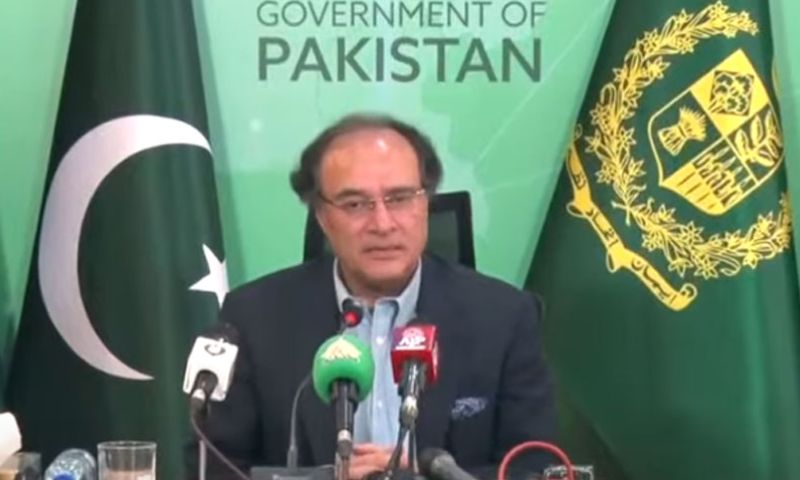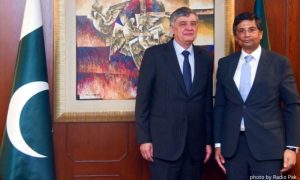ISLAMABAD: Pakistan’s Finance Minister Senator Muhammad Aurangzeb expressed confidence on Tuesday that the International Monetary Fund (IMF) board will approve a $7 billion, 37-month Extended Fund Facility (EFF) during its meeting on Wednesday.
“Pakistan successfully concluded a 9-month Stand-By Arrangement (SBA) with the IMF, and we are hopeful the board will approve the $7 billion program,” Aurangzeb stated at the “High-Level Private Sector Dialogue – CPEC-II and the Region,” held virtually via Zoom.
The finance minister noted that an agreement on the loan program was reached in July, pending approval from the IMF executive board and timely confirmation of financing assurances from Pakistan’s development and bilateral partners.
Aurangzeb emphasized Pakistan’s commitment to implementing structural reforms across various sectors, including taxation, energy, state-owned enterprises, and privatization. “We will stay on course,” he asserted.
Earlier this month, the finance minister reiterated plans to introduce new taxes on the retail sector, despite pushback and strike threats, as part of the broader strategy to secure IMF board approval for the loan. “This is not going to be taken back,” he emphasized, urging stakeholders to contribute positively to the economy.
During the dialogue, Aurangzeb expressed gratitude to China for its support of the IMF program, highlighting its role as Pakistan’s key partner.
He reported improvements in Pakistan’s economic indicators, noting stable currency and foreign exchange reserves covering two months of imports, alongside a deceleration in inflation. This has led to reduced policy rates, benefiting the industry.
The minister announced the recent rejection of Treasury Bills (T-bills) and Pakistan Investment Bonds (PIBs), signaling that the government is no longer desperate for domestic borrowing. “If needed, we will borrow on our own terms,” he said, encouraging the banking sector to lend to the private sector.
Aurangzeb emphasized the importance of macroeconomic stability and announced the continuation of the China-Pakistan Economic Corridor (CPEC) Phase II, focusing on monetizing existing infrastructure.
“This initiative, dubbed the new Silk Roads, aims to attract global investment partners, with the private sector driving growth supported by a conducive policy framework,” he concluded.


























